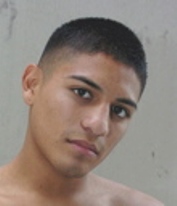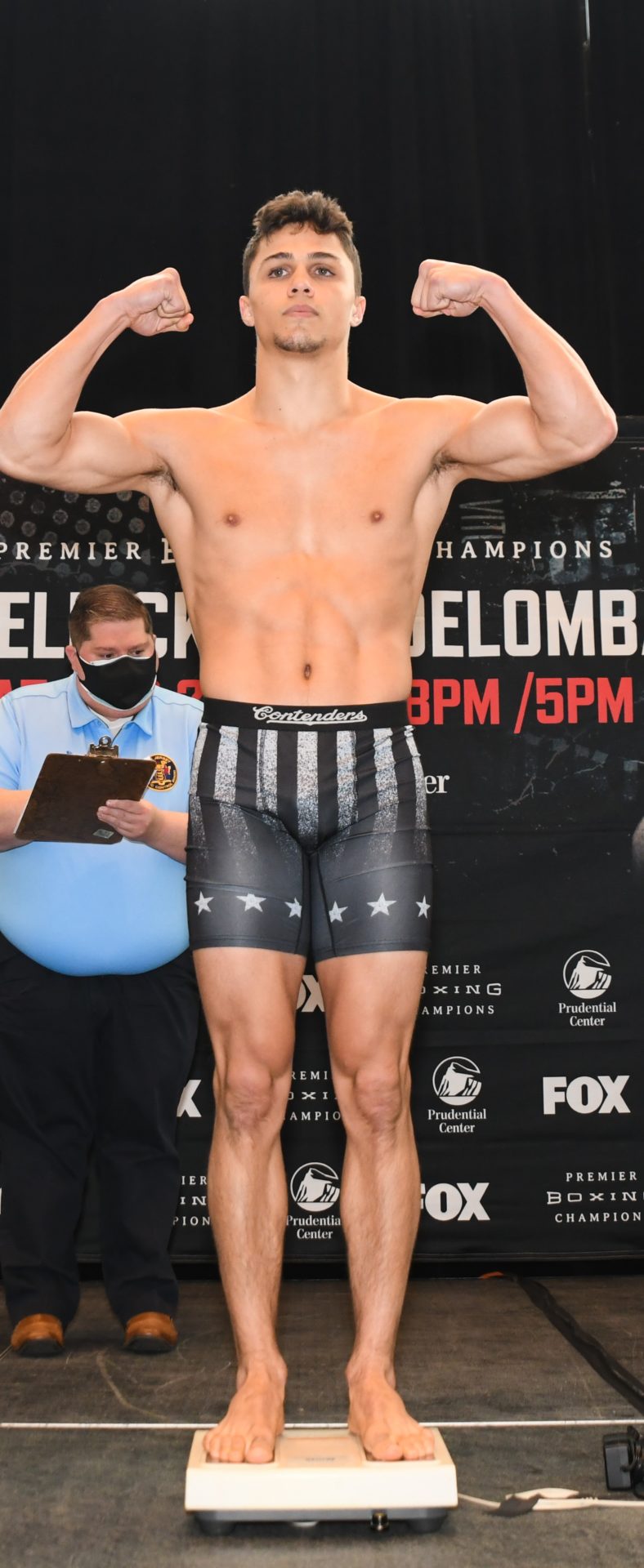
Taken in composite, Mexican Abner Mares and American Mikey Garcia make a quite compelling fighter, and despite competing networks and the promoters that milk and direct them, Saturday brought a chance to see the men in a composite – not to compare them, though that day might yet come, and neither to see how they complement each other, but rather to see how, together, as the important fighters on their respective cards, Mares as main on Showtime and Garcia as co-main on HBO, they made Saturday an enjoyment.
Garcia, who found a late replacement for Mexican Orlando Salido in Argentine Jonathan Barros, who was overmatched then not overmatched then, yes, overmatched, enjoys a credibility advantage because of who promotes him, and that might as well be set forth early: Top Rank is good at developing fighters, as fighters then attractions, as any promotional company in boxing history. Golden Boy Promotions is not, or certainly not yet.
Top Rank makes a high virtue of never putting a fighter in a match for which he is unprepared; when a Top Rank project like Julio Cesar Chavez Jr. or Juan Manuel Lopez loses, it is not because Top Rank hurried him but rather Top Rank, or more specifically Bruce Trampler, our sport’s finest noncombatant practitioner, believes nothing more can be done to prepare him for what elite opponents remain. Once a fighter has proved himself fully developed, Top Rank’s bent changes from research and development to sales; while prospect Alex Saucedo’s next opponent is being chosen right now to determine and maximize Saucedo’s potential as a prizefighter, regardless of what revenue he brings in 2013, Manny Pacquiao’s next opponent was chosen to maximize Top Rank’s earnings. An excellent model, that.
Golden Boy is all sales all the time. Projects appear chosen for their bilingualism and beauty – the assets responsible for Oscar De La Hoya’s ascent, his company believes – or other qualities that strike scouts as exceedingly marketable. Golden Boy’s is not a model sustainable as Top Rank’s because it involves either overpaying for proven commodities or investing in developmental ventures that go nowhere for their want of selection criteria and strategy. Abner Mares is the exception.
Saturday at Staples Center in Los Angeles, Mares made another brutal and entertaining match against another well-regarded opponent, a Panamanian named Anselmo Moreno, who, in aficionados’ imaginations at least, had the exact tools to disarm him. Mares can be disarmed but not dissuaded, so long as an opponent allows him to move recklessly, and therefore wreckingly, forward. He is a consummate Mexican prizefighter in this sense, all tenacity and hooks to the body with an overhand right he hurls head-down, though he’s somewhat less Mexican in his devotion to fouling energetically till the referee stops him. A traditional Mexican code says a prizefighter solely fouls an opponent he is not man enough to defeat fairly – and that ethic says it is better to lose honorably to a better man, in a fight to unconsciousness or worse, than foul one’s way to a different outcome.
Mares’ methods, in this sense, seek refuge in American clichés: “winning is everything”, “if you’re not cheating you’re not trying”, “bend the rules to their breaking point”. Mares charges to set his shoulders beneath your elbows, a position in which he has you handcuffed and is free to whale away, and if you retaliate by setting yourself on the back of his neck, to push his lowered head a little lower, he blasts you in the balls then comes up shrugging. He does not have-to throw that punch, no, but then you didn’t have to lean on his neck, and he knows the worst that cup shot will bring is a double warning, offsetting fouls, and whereas he had every choice to throw that punch or not, you had little choice to do what you did. You’ll do it again, reflexively, a few more times, and if the referee does not penalize you, Mares’ll put knuckles where your cherries grow in the meantime.
Mares gets, and quite possibly deserves, the benefit of officiating doubts because he is trying to make a fight at every moment of every match, to a point of dropping his shiny purple gloves and loping after an opponent, as he did in the 12th round Saturday. Mikey Garcia would not do that. He is more polished than Mares, more apt to throw the perfect punch with perfect leverage at the perfect moment. Garcia is fantastic but also imperfect, as we got reminded Saturday.
That Garcia is hittable is not truly worrisome; while there was nothing edifying about how he turned away from Barros after the Argentine’s left hook snapped his chin in round 7, aficionados appropriately trust if Garcia hadn’t a chin, his promoter would have discovered that 15 fights ago. It’s the technical flaws that bring concern with Garcia, specifically an urge to parry, with his right hand, jabs to the body. That is a major no-no and sets one to imagining what’ll happen the first time Orlando Salido, or worse, Yuriorkis Gamboa, feints that jab, watches Garcia’s right hand drop, and remortgages his home on a left hook to Garcia’s right chin. Salido will answer that question graciously, and perhaps gratuitously, in Garcia’s next fight in January, while being more durable before Garcia’s own left hook than Barros was.
Abner Mares wants his next opponent to be Top Rank’s Nonito Donaire, and it was refreshingly uncouth the way Mares demanded that Saturday. Donaire’s December opponent, Mexican Jorge Arce, was not, in his prime six years ago, good as Mares is right now, and one can rightfully assume if Donaire-Mares never happens it is because Top Rank did not think Donaire was ready, or did believe there was much more and easier money elsewhere.
Bart Barry can be reached at bart.barrys.email (at) gmail.com.

























